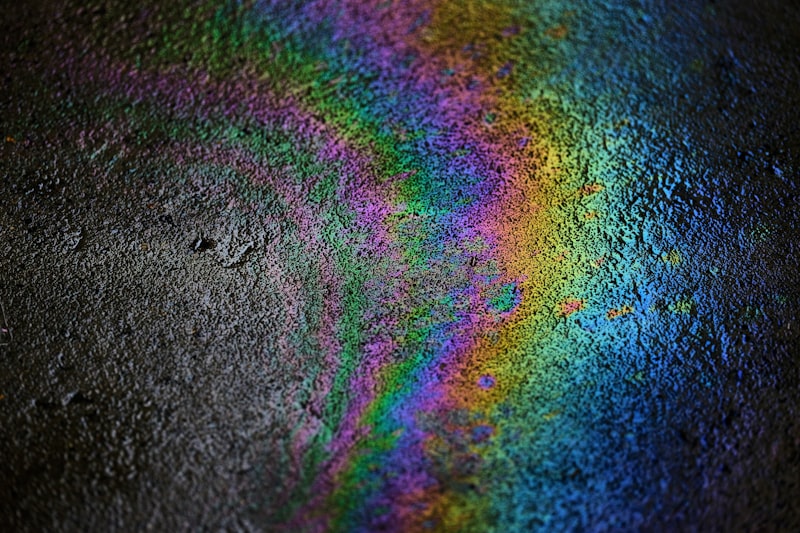Oil pollution is a serious environmental problem that threatens our seas, rivers and habitats. Responding effectively to deal with this kind of pollution requires specialized training and skills. So, what training is important in oil spill response?
First, professionals trained for oil pollution response need to have a deep understanding of the type of pollution and its spread. Understanding the behavior of oil on water and how weather conditions and sea currents affect it is fundamental to effective response. This knowledge allows us to predict the speed and area of pollution spread so that we can effectively direct resources and contain pollution.
In addition, oil pollution response teams must learn to act quickly and effectively in emergency situations. Crisis management and coordination skills are vital to manage the complexity on the ground. Having a detailed plan for how teams will be organized, what steps to take and what equipment to use can determine the success of the response.
It is also critical to have up-to-date knowledge of the equipment and technologies used to combat oil pollution. Learning advanced cleanup techniques and being able to use these technologies effectively is vital to minimize pollution and protect the environment.
Training and preparation are essential to be effective in responding to an oil spill. Professionals need deep technical knowledge, crisis management skills and a command of the latest technology to control pollution and protect the environment. These trainings help us to act successfully in the fight against oil pollution, protecting wildlife and human health.
Danger at Sea: Skills Needed to Prevent Oil Spills
The seas are an important part of nature's delicate balance. However, human impacts, such as oil spills, can upset this balance and jeopardize ocean ecosystems. Oil spills can seriously affect marine life, coastlines and the economy. However, having specific skills and technologies to deal with these hazards can reduce or prevent these crises.
One of the skills required to prevent or mitigate oil spills is the rapid and effective response of maritime specialized teams. These teams can use advanced monitoring and assessment techniques to determine the size of the spill and the rate of spread. They can also effectively use specialized equipment such as different types of plugs, barriers and absorbent materials to contain the spill at sea.
An effective strategy for preventing oil spills and minimizing their impact is the establishment and regular implementation of contingency plans. These plans outline the steps needed to react quickly in the event of a spill and ensure coordination between the parties involved. In addition, assessment of environmental impacts and planning of clean-up operations are also an important part of this strategy.

With the advancement of technology, new and innovative solutions are emerging to prevent oil spills. These include various technologies such as subsea robots, remote sensing systems and biological cleaning methods. These technologies can make the processes of detecting, monitoring and cleaning up spills more effective and efficient.
The skills and technologies required to prevent or mitigate oil spills at sea are vital for the protection of wildlife and the sustainability of marine ecosystems. The continuous development and improvement of these skills and technologies will play a critical role in ensuring a clean and healthy marine environment for future generations.
Taking Action in a Crisis: Emergency Training for Oil Pollution
Oil pollution is a serious environmental problem that threatens our seas, rivers and habitats. A sudden oil spill can spread rapidly and have devastating impacts on ecosystems. Therefore, it is crucial to respond quickly and effectively in times of crisis. This is where emergency training for oil pollution is vital.
Emergency training is key to being prepared to act in a crisis. These trainings teach personnel of environmental protection teams, marine rescue teams and other relevant organizations how to react in a crisis. Trainings can include different scenarios depending on the size and type of crisis. For example, ship-based response techniques to deal with the effects of an oil spill at sea, or equipment used on land for clean-up operations in coastal areas.
These trainings emphasize not only technical skills, but also communication and coordination. In a crisis, it is vital that teams come together quickly and effectively and coordinate their actions. By simulating such scenarios, emergency trainings improve teams' ability to work together and ensure seamless communication in a crisis.
Furthermore, emergency training emphasizes the importance of protecting people's safety and health in times of crisis. In emergencies such as oil pollution, people can also be directly affected, which is an additional concern. The trainings teach staff how to ensure their own safety and how to deal with hazards in times of crisis.
Emergency training for oil pollution is vital for an effective response in a crisis. These trainings prepare personnel in communication, coordination and safety as well as technical skills. This ensures the competence and preparation needed to act in a crisis and protect the environment.
Guardians of the Oceans: The Role of Trained Personnel in Combating Oil Pollution
Close your eyes and imagine: Clear blue waves dance on the calm surface of the ocean. The sun shines on the water and gives life to the many creatures that lurk in the depths of the sea. However, this idyllic landscape is becoming increasingly rare. Oil pollution poses a serious threat to the beauty of the oceans. Fortunately, there are guardians of the oceans - trained personnel fighting on the front lines to protect these beauties.
Oil pollution not only affects marine life, but also harms ecosystems and human health. Dealing with this pollution is not a job that can only be done by cleaning teams. At this point, the role of trained personnel is crucial. These personnel have the necessary knowledge to understand the effects of oil pollution and apply the most effective response methods.
Trained personnel can respond quickly to oil pollution incidents and effectively manage cleanup operations. They also take part in emergency response teams to save marine life. These teams are specially trained to rescue and treat animals harmed by oil pollution.
However, the role of trained personnel is not limited to emergency response. They also play an important role in understanding and preventing the causes of oil pollution. This includes developing safety protocols in industrial facilities, promoting environmentally friendly practices of maritime transportation companies, and raising public awareness of oil pollution.

Trained personnel, the so-called guardians of the oceans, play a key role in the fight against oil pollution. They not only manage clean-up operations, but also make a significant impact through their efforts to reduce the causes of oil pollution and raise awareness among communities about protection. In this way, they make a valuable contribution to protecting the future of our oceans.
Education to Protect Our Seas: How to Quickly Prevent Oil Spills
The seas are one of our planet's greatest sources of life. However, man-made disasters, such as oil spills, can cause serious damage to these fragile ecosystems. Therefore, urgent education and awareness-raising is essential to protect our seas. Preventing oil spills quickly is a critical step to protect marine life and the environment.
First, it is important to detect oil spills quickly. This can be achieved through specialized training for seafarers and environmentalists. Technological innovations such as sensors and drones that can detect oil spills at sea can also contribute to this process. Trained teams can quickly identify the spill, intervene and prevent its spread.
Second, effective response strategies need to be developed. This requires specialized training of maritime teams and coast guard units. Rapid response and coordination are vital to limit the spread of the spill and initiate cleanup operations before it reaches shore. It is also important to use environmentally friendly cleaning agents to protect marine life.
Third, communication and coordination are vital in times of crisis. Effective communication channels must be established between the maritime industry, government agencies and environmental protection groups. This way, information can be quickly exchanged and response strategies coordinated in emergency situations.
Training to protect our seas is important because disasters like oil spills can happen at any time. Fast and effective response is a critical step to protect marine life and the environment. This is why specialized training for seafarers and environmentalists must be provided and technological innovation must be supported. Only in this way can we protect our seas and leave a clean and healthy environment for future generations.